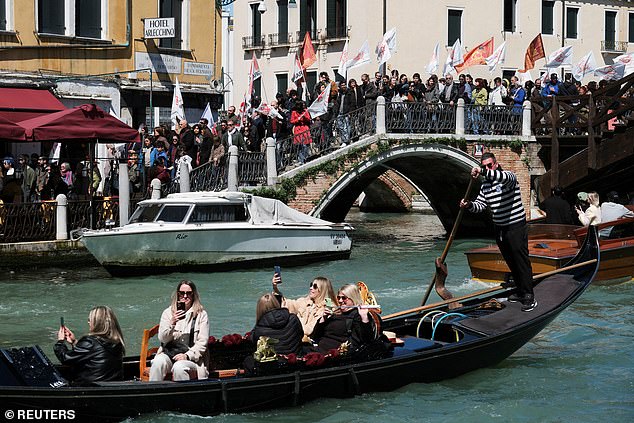Venice was rocked today by violent clashes between police and protesters demonstrating against a controversial new “tourist tax” on short-term visitors.
Vibrant photographs of the Italian city’s historic canals and narrow alleys showed protesters armed with signs and banners expressing disdain for the unique new policy aimed at cracking down on excess tourism during peak periods.
Amid the furor, Venice’s gondoliers carried on as usual, photographed transporting a group of tourists around the city while taking photographs of the growing protests around them.
Critics argue that the 5 euro (£4.30) fare, in place from today until May 5, and on weekends until July 14, is unlikely to significantly affect the around 30 million journeys made. to Venice every year, and could backfire by tarnishing the city’s public image.
In a surprising statement, former mayor Massimo Cacciari went so far as to suggest that tourists should flatly refuse to pay the “absurd” entrance fee, arguing that they already “pay for everything.”
Here today, gondola tomorrow: Venice authorities have just introduced a new policy aimed at reducing the number of short-stay tourists during the busiest days of the year.
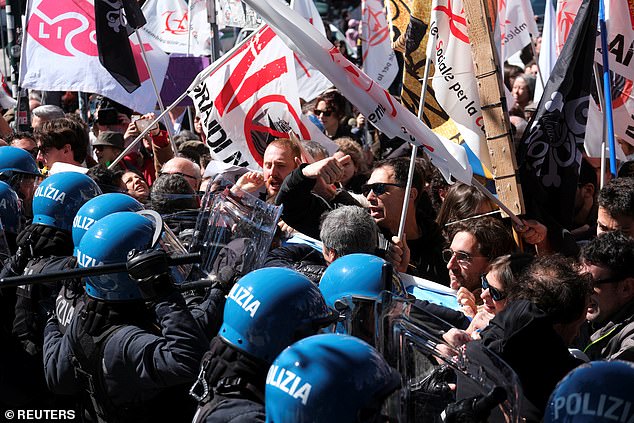
People clash with police as they protest against the introduction of the tourist and registration fee in Venice, Italy, on April 25, 2024.
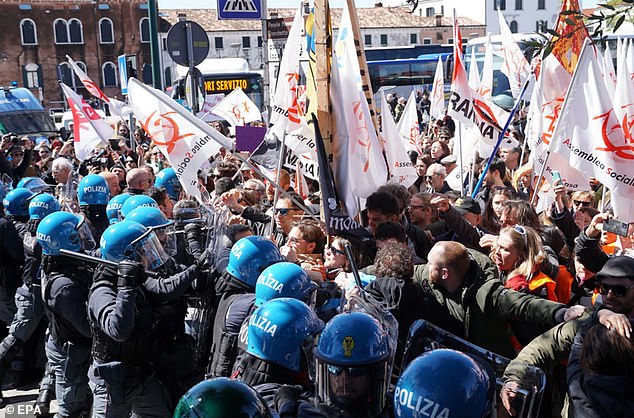
Members of social centers confront police officers during a demonstration in Piazzale Roma against the introduction of a city entrance fee for day-trippers, in Venice, April 25.
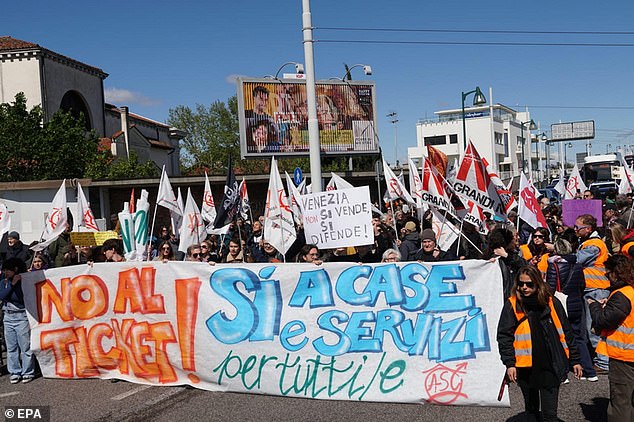
‘No to the ticket!’ reads a banner in Piazzale Roma. ‘Yes to houses and services for all’
Cacciari noted in a statement to the Adnkronos news agency that daytime visitors already pay “three times more than residents” for public transportation in the city, and that all travelers contribute to the longevity of Venice’s restaurants and museums.
In scathing comments, he added that he would “love to see” city authorities “justify in court the legitimacy of imposing a tax upon entering the city.”
‘What are they going to do, block people’s movement, send the police to ask to see everyone’s documents?
Despite calls from resident groups to rethink the plan, Venice today becomes the first city in the world to charge an entrance fee to tourists taking day trips, with the aim of reducing the number of visitors from short duration that cause unmanageable congestion at peak times.
The so-called “tourist tax” has been controversial, and several committees and residents’ associations have planned protests to coincide with its launch today in Italy.
In fact, large crowds gathered with colorful banners in marches against the measure.
Representatives argue that the fee will not solve fundamental problems, but will only tarnish the city’s public image.
Under the new rules, tourists passing through the city without spending the night will be charged a fee.
Authorities hope this can help manage the flow of some 30 million tourists drawn to the city’s history and romantic canals each year.
The plan will be implemented only on the 29 busiest days of the calendar year from now until May 5, and on weekends until July 14 within certain time slots.
Those who choose to spend the night in a hotel will be exempt.
Residents, travelers, students and children under 14 years of age will also be exempt from paying the fee.
But from today, hikers will have to buy a ticket online that will provide them with a QR code, allowing them to appease hostesses who carry out random checks with powers to impose fines ranging from €50 to €300 for being caught without a ticket. code. .
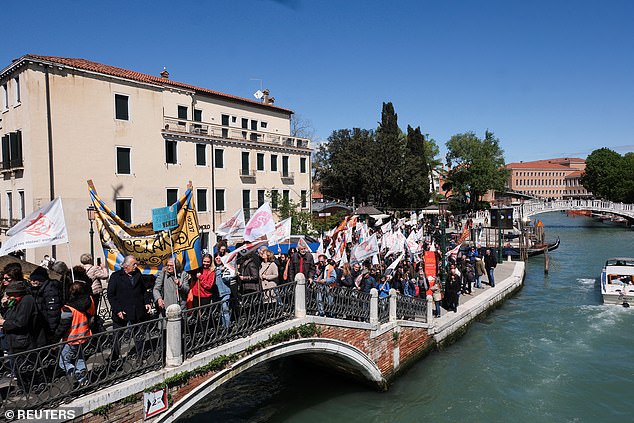
People protest against the introduction of the tariff in Venice, Italy, on April 25, 2024.

A citizen shows a ticket with the writing “Veniceland” during a protest against the Venice tax in Venice, Italy, Thursday, April 25, 2024.
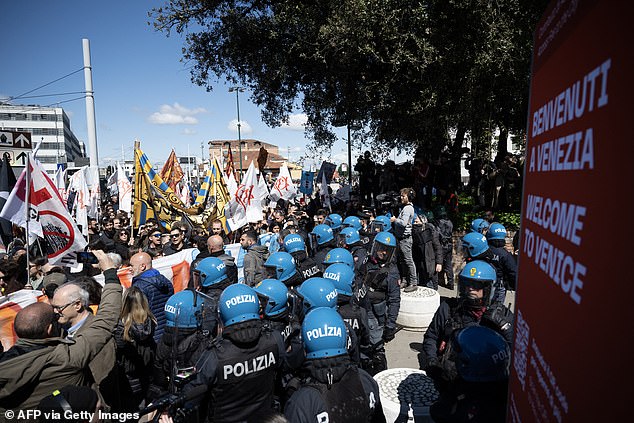
Protesters confront riot police officers during a demonstration in Venice on April 25.
The city council said 5,500 people had already booked a ticket for Thursday, generating €27,500 on the first day of the programme. However, they deny that it is primarily a money-making initiative.
Simone Venturini, councilor responsible for tourism, defended the policy as part of a wider strategy trying to tackle the problems of overtourism, although admitted it was not “a magic wand”.
“We want to discourage tourists from visiting Venice during these designated 29 days,” he said.
‘Fewer day trippers does not mean less income because overnight tourists are more important to the city’s economy.
“We will see the results in the medium and long term and in the meantime we will evaluate how it goes.”
Venturini previously said the plan aims to find “a new balance between the rights of those who live, study or work in Venice and those who visit the city.”
Venice authorities have had to wait a long time for the plan to become a reality, with initial proposals presented in 2019 being delayed by the pandemic.
The city also abandoned its plans to charge hikers 10 euros a day last year, with Venturini citing “resistance.”
Once again, residents are criticizing the plan, arguing that the measure is affecting the city’s image as an attractive destination for tourists.
“I can tell you that almost the entire city is against it,” He suggested Matteo Secchi, who runs the resident activist group Venessia.com.
‘You cannot impose an entry fee on a city; All they are doing is transforming it into a theme park. This is a bad image for Venice… I mean, are we kidding?
Federica Toninello, director of housing association ASC, suggested the council had not “really understood the consequences” of mass tourism in Venice.
«To begin with, 5 euros will not serve to deter people. But hikers aren’t the problem; “Things like the shortage of affordable housing are…What we need are policies to help residents, for example, setting rules to limit things like Airbnb,” she said, as reported The Guardian.
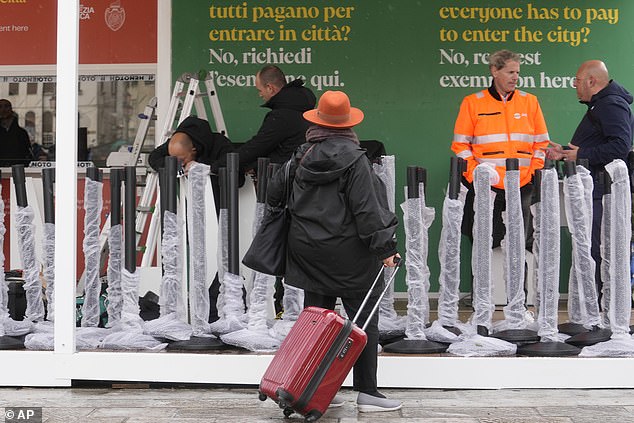
Workers prepare tourist tax checkout counters outside the main train station in Venice, Italy, Wednesday, April 24, 2024.
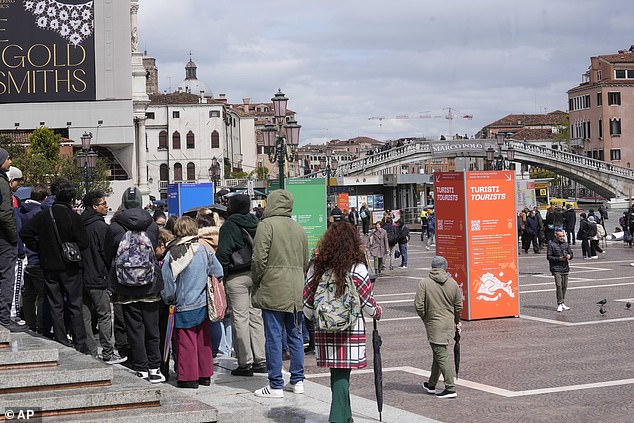
Tourists arrive outside the main train station in Venice, Italy, Wednesday, April 24, 2024.
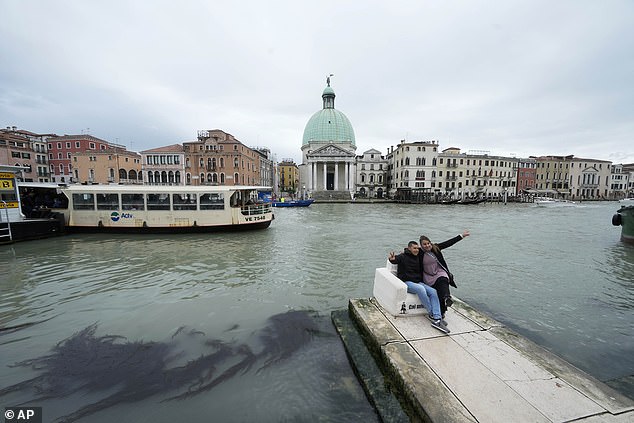
Tourists are pictured sitting on an abandoned couch on a pier in Venice, Italy, Wednesday, April 24, 2024.
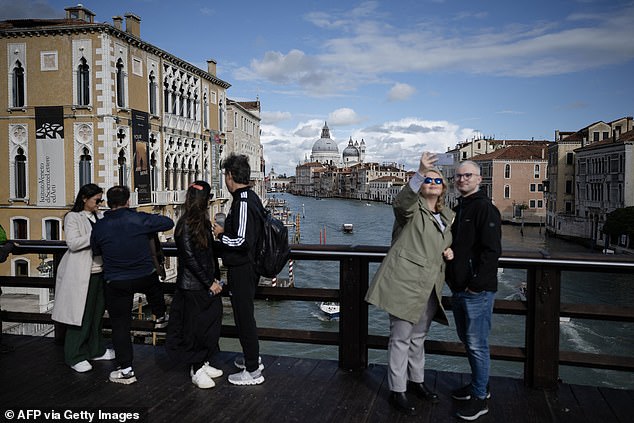
Tourists take selfies with the Grand Canal in the background at the ‘Ponte dell’Accademia’ on April 24, 2024 in Venice, on the eve of the start of the official test of the city’s reservation system.
Venice’s population has fallen steadily in recent years, partly because residents abandon and rent their apartments to tourists.
In turn, this reduces the supply of available housing and makes housing more expensive for residents.
Barcelona has faced a similar problem and, in 2021, set a precedent by becoming the first European city to ban short-term rentals of private rooms for less than 31 days.
Rome and Milan, two of Italy’s most tourist cities, have also since looked at restricting short-term room rentals as rents rise and wages remain stable.
Venetians are also concerned that short-term visitors spend less than tourists who rent rooms or book hotels for several days.

